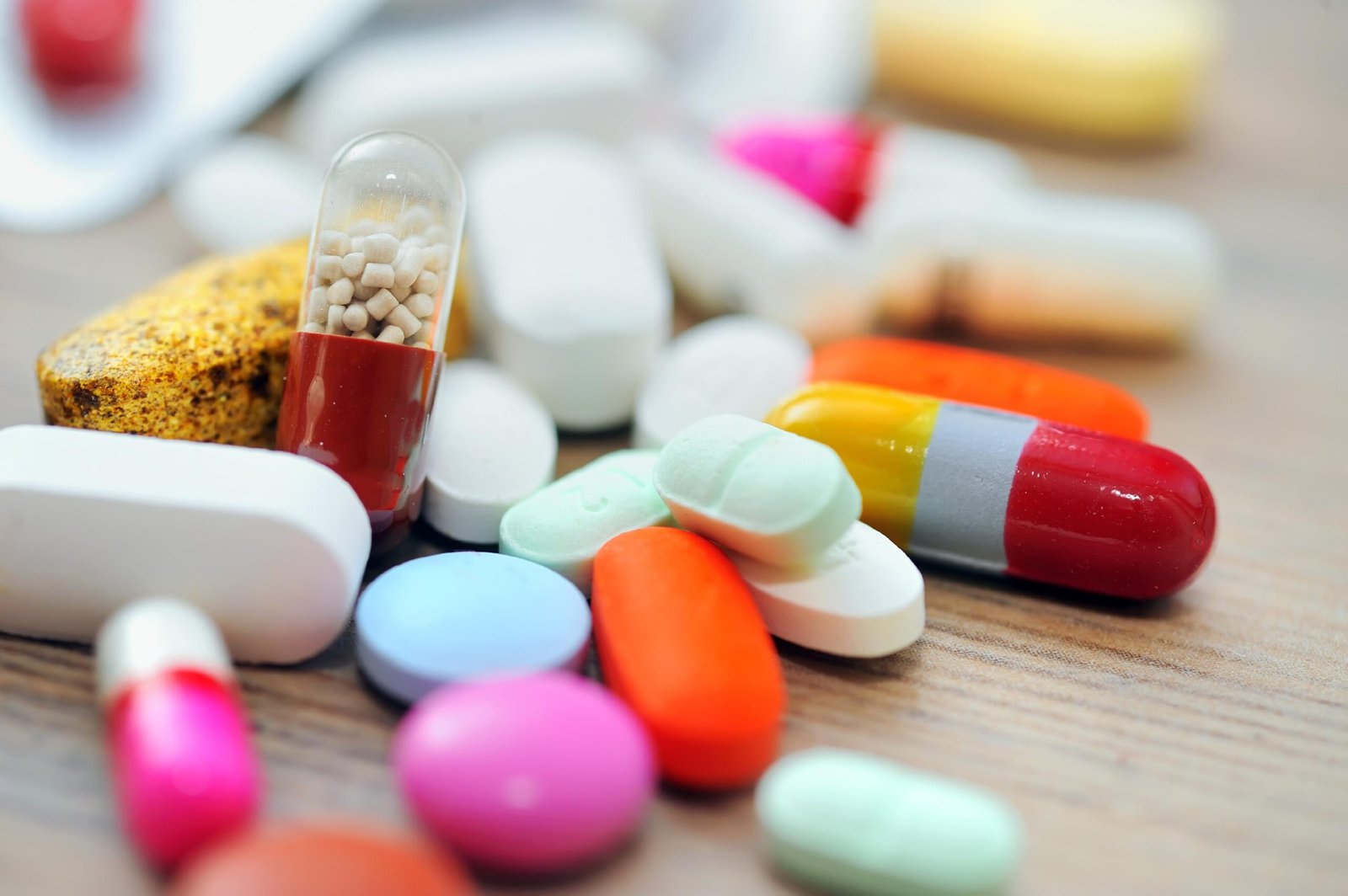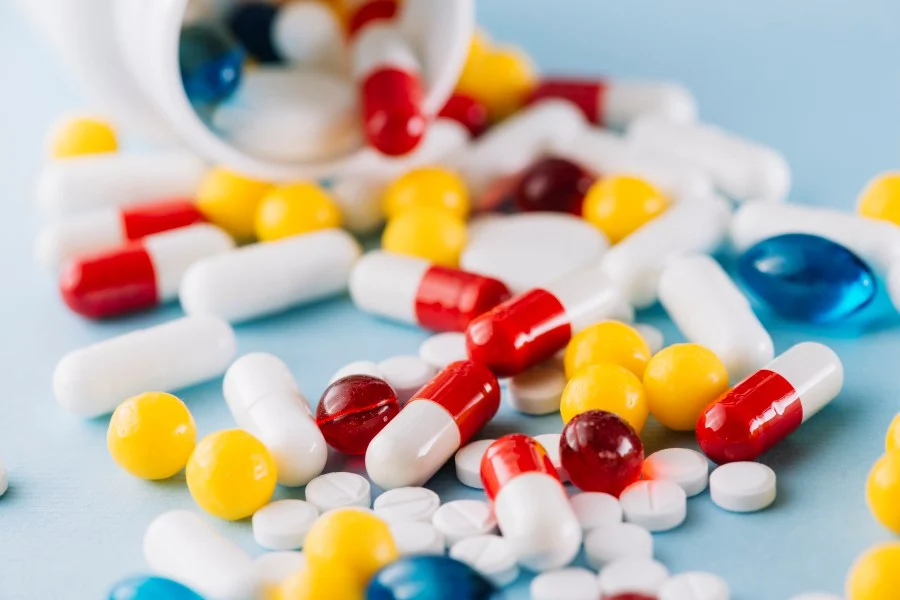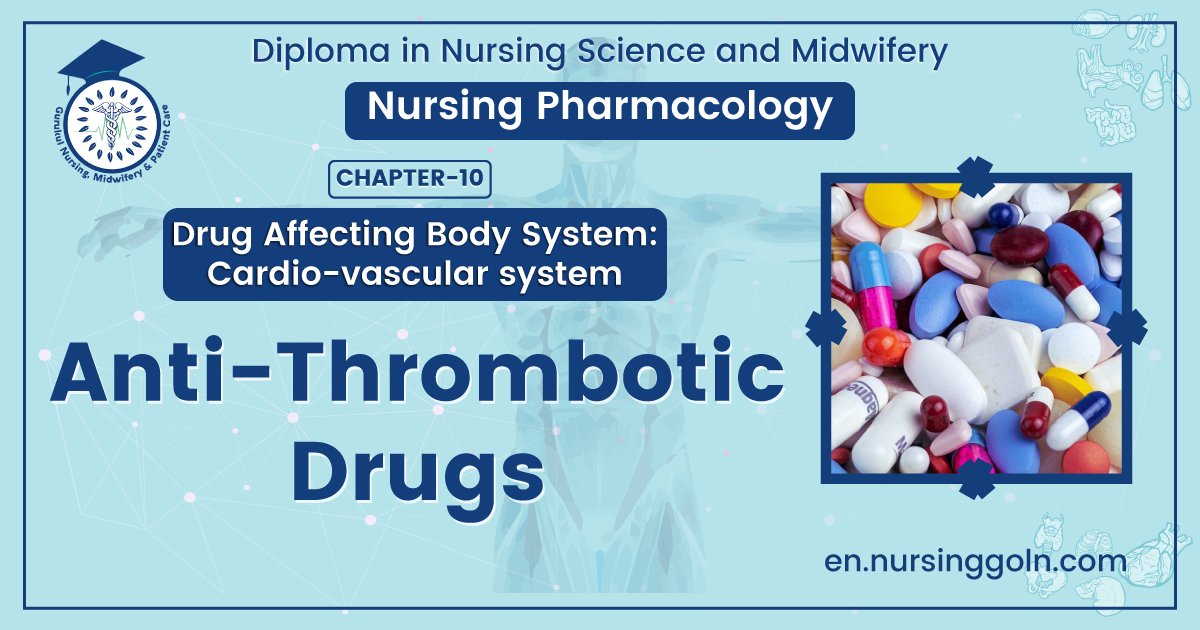Anti-Thrombotic Drugs –This book covers the entire syllabus of “Pharmacology” prescribed by BNMC- for diploma in nursing science & midwifery students. We tried to accommodate the latest information and topics. This book is an examination setup according to the teachers’ lectures and examination questions.
At the end of the book, previous questions are given. We hope in touch with the book students’ knowledge will be upgraded and flourish. The unique way of presentation may make your reading of the book a pleasurable experience.
Anti-Thrombotic Drugs
The agents that inhibit thrombus formation by decreasing platelet adhesion on the arterial side of circulation, where thrombi are formed by platelet aggregation (and anticoagulants have little effect), are called anti-
platelet drugs.
Anti-platelet drugs
- Aspirin
- Sulfinpyrazole
- Ticlopidine
- Dextran-70
- Dazoxiben
- Dipyridamole
- Epoprostenol
- Clofibrate
- Dazoxiben
- Sulphinpyrazone

Mechanism of action of aspirin in arterial thromboembolism
Low dose of aspirin is required to prevent TxA2 synthesis with minimal affecting PGI2 synthesis, which is beneficial in the inhibition of thrombus formation.
Indication of anti-platelet drugs:
1. Arterial thrombo-embolism.
2. Cerebrovascular disease (CVD)
3. Acute myocardial infarction
- Loading dose of aspirin: 300 mg (3 tabs)
- Maintenance dose: 100 mg (1 tab) daily.
4. Prevention of cardiovascular conditions:
- Shock
- Transient ischemic attack
- Unstable angina
5. Peripheral vascular disease (heparin + aspirin)
6. Open heart surgery (coronary arterial bypass)
7. Atherosclerosis.
Anti-thrombotic role of aspirin:
- Aspirin is maximally effective as an anti-thrombotic agent at doses much lower than required for other action of drug.
- Low dose of aspirin causes inhibition of enzyme cyclooxygenase (protein) in the platelets. Since platelets do not synthesis new proteins the action of aspirin on platelet cyclooxygenase is permanent (i.e. irreversible) lasting for the life of the platelets (7 to 10 days). By inhibition of this enzyme aspirin blocks the production of thormboxane A2 (TxA2) and thereby prevent thrombus formation.
- Antithrombotic doses of aspirin: 160-320 mg/day.
The agents which are used clinically in hyperlipidemic patient for lowering the blood lipid level to some extent and to prevent cardiovascular disease is called anti-hyperlipidertlic agents.

Anti-hyperlipidemic drugs
1. Nicotinic acid
2. Clofibrate
3. Probucol
4. Mevastatin
5. Colestipol
6. Benzafibrate
7. Cholestyramine
8. Lovastatin
9. Pravastatin
Uses:
1. Hyperlipidemia
2. Peripheral vascular diseases
